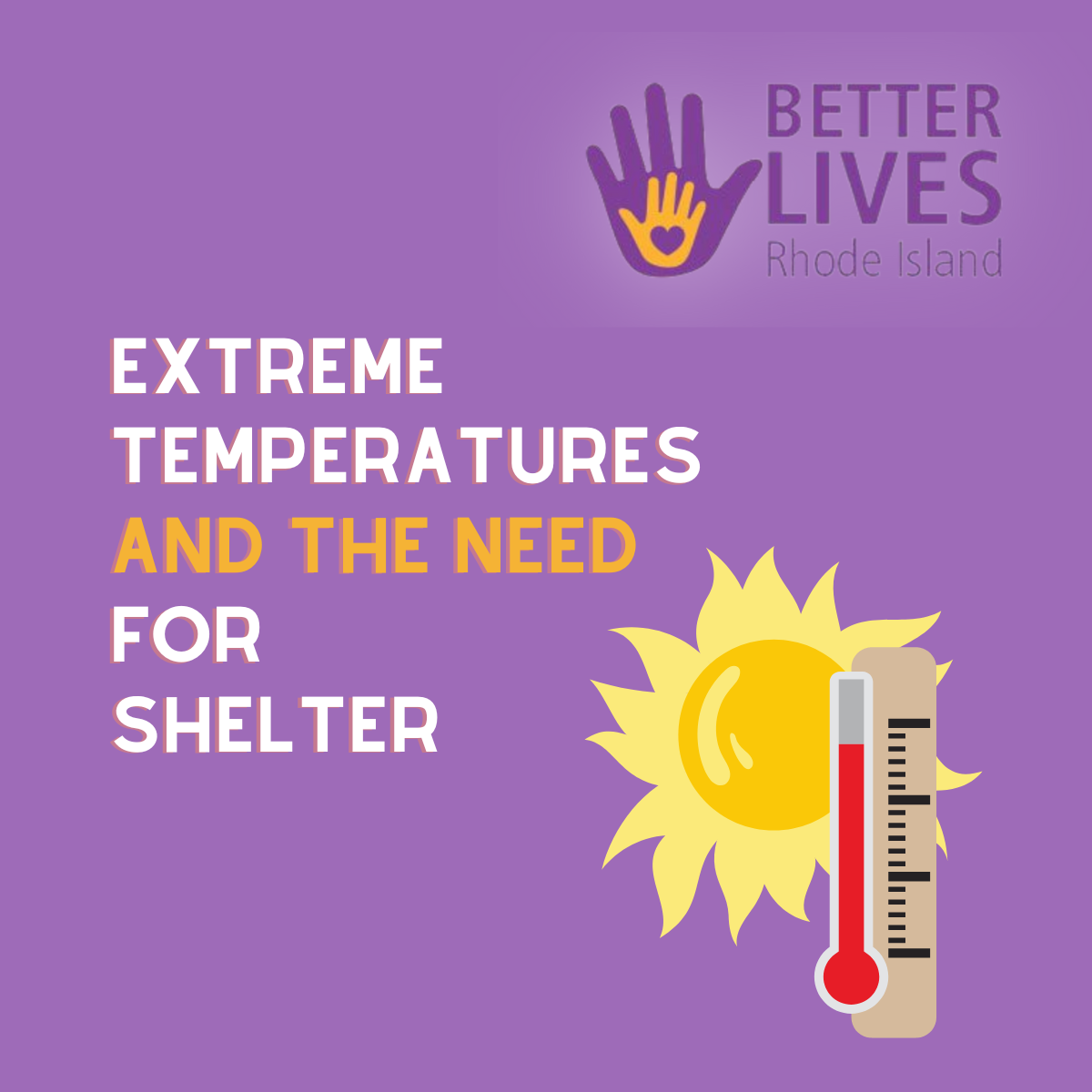Rhode Island has seen some interesting temperature fluctuations this summer. According to WJAR, the average temperature in the summer is on the rise, with Providence seeing more than 11 days above 85 degrees Fahrenheit — the most in over 50 years.
Many of us are fortunate enough to have permanent shelter with fans, air conditioners, cold water, and shade. For Rhode Island’s homeless population, a lack of permanent shelter can have disastrous effects on health, particularly during periods of record heat or record cold temperatures.
Consequences of Extreme Heat
According to the CDC, your health can be affected by heat exposure in as little as 10 minutes! Heat stroke, one of the most serious heat-related illnesses, occurs when the body is no longer able to regulate its heat. The body may rise to temperatures as high as 106 degrees Fahrenheit. If the body stays at a high temperature for too long, it can lead to organ damage or even death.
Other consequences of long-term heat and sun exposure include sunburns, dehydration, nausea, cramping, heat rash, extreme thirst, and fainting.
The top suggestions to prevent heat stroke, heat exhaustion, or sunburns are to avoid excessive sun exposure, stay hydrated, or shelter in a cool area like an air-conditioned building or vehicle. With limited shelter available to the unhoused, this puts them at a greater risk for heat-related illness.
The Effect on the Unhoused
Mother Nature does not discriminate when it comes to extreme heat — anyone who is outdoors for an extended period runs the risk of heat stroke. However, many of us are privileged to have a place to go and avoid the heat.
The homeless face a unique danger that demands our attention; the National Health Care for the Homeless Council acknowledges that particularly young or old homeless citizens are at risk due to being malnourished, exhausted, and lacking access to food, water, sunscreen, and protective equipment like sunglasses and clean clothes.
How Better Lives Helps the Homeless Combat Inclement Weather
The first step, of course, is outreach. Our case managers work to keep track of our unhoused community. Outreach not only brings hope and support — but it improves the chances of accessing emergency shelters during extreme weather conditions.
The second step is securing shelter spaces. Cities and towns across the state have cooling shelters to keep Rhode Islanders out of dangerous conditions, but these shelters are always at risk of reaching capacity, particularly as summers become hotter and hotter.
The ultimate goal, through our services, is to connect the unhoused with the resources to become self-sufficient in a safe space. Through case management, our team works with the unhoused to secure the documentation necessary that help them apply for jobs and housing. Along the way, our team works to connect those on the streets with emergency shelters in times of inclement weather.
Helping the unhoused is a round-the-clock task. Weather conditions pose a unique challenge, and with your support, we can fight to lower the risk of heat-related illnesses and death among the unhoused.

